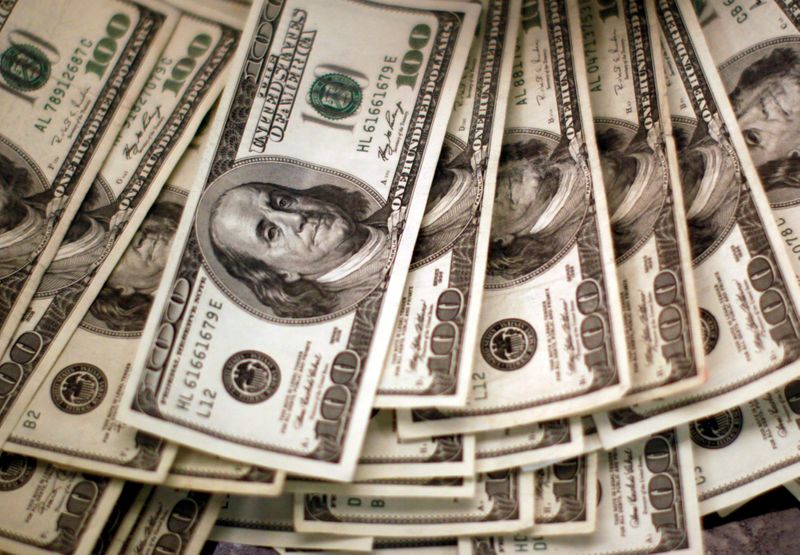By Olga Cotaga
LONDON (Reuters) - The U.S. dollar surged against most major currencies on Monday amid fears that last year's U.S.-China dispute will be re-ignited, this time over the novel coronavirus.
U.S. President Donald Trump and Secretary of State Mike Pompeo have pinned the blame for the pandemic on China, where the new coronavirus outbreak is believed to have originated.
The latest salvo came from Pompeo on Sunday, who said there was "a significant amount of evidence" that the virus emerged from a laboratory in the central Chinese city of Wuhan.
"This morning's session is being dominated by risk-averse trading as investors weigh the negative consequences to global growth from another escalation in U.S.-China tensions," said Simon Harvey, currency analyst at broker Monex Europe.
"The headlines of further tariffs and supply-chain disruptions come at a time where global growth expectations are already fragile, causing currencies such as sterling and the euro to trade on the back foot this morning despite exit measures set to be announced or implemented in their respective economies," Harvey said.
The euro was last down 0.4% at $1.0932 (EUR=EBS). Sterling was also down by 0.4% to $1.2442
The dollar was also rising against Scandinavian currencies, which are so vulnerable to global trade risks. The Swedish crown was last down 0.6% at 9.8995 versus the dollar
However, the biggest move in the currency markets was the Chinese yuan, which fell to a six-week low of 7.1555 against the dollar in the offshore market
Analysts were debating how the United States might attack China again - with more trade tariffs or even cancelling the payments on the U.S. Treasurys that China owns - but they all agreed the dollar/yuan cross would see higher volatility.
"A re-escalation in U.S.-China trade tensions has the potential to bring an end to the relative stability in USD/CNY," said Lee Hardman, a forex strategist at MUFG.
The moves extended a dour start for May, which began with Friday's bleak U.S. data and the threat of a fresh trade-war between the world's two biggest economies.
Pompeo did not provide evidence, or dispute a U.S. intelligence conclusion that the virus was not man-made. But the comments double down on Washington's pressure on China as U.S. deaths and economic damage mount.

The ultimate safe-haven currency - the Japanese yen - was the only major currency that rose against the U.S. dollar, last trading up 0.2% at 106.71